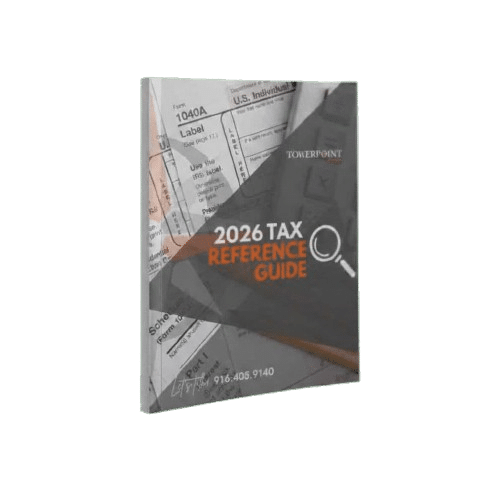Introduction
An A B trust is a valuable estate planning tool for high net worth married couples looking to minimize estate taxes, protect wealth, and control how their legacy is passed on. With the federal estate tax exemption at a historic high in 2025, but set to drop in 2026 due to changes in current tax law, A B trusts have become more important than ever.
This trust structure helps reduce estate taxes, preserve trust assets, and provide long-term protection for the surviving spouse and future generations. With careful planning, an A B trust can offer potential tax benefits, avoid double taxation, and keep your wealth aligned with your family’s long-term goals.
A B Trust Explained: What is an A B Trust?

The Core Concept: Split the Trust
An A B trust – also known as a bypass trust, AB living trust or credit shelter trust – is created within a joint trust established by a married couple. When the first spouse passes away, the trust is split into two separate trusts:
Trust A (Survivor’s Trust): This revocable trust holds the surviving spouse’s share of the couple’s assets. The surviving spouse has full control over this portion – including the ability to amend or revoke the trust and manage the assets according to their needs and changing personal circumstances.
Trust B (Bypass Trust or Credit Shelter Trust): This is an irrevocable trust that holds the deceased spouse’s share of the estate up to their individual federal estate tax exemption. The B trust is not included in the surviving spouse’s estate and provides income from the trust assets to the surviving spouse for their lifetime. But the principal can’t be changed or withdrawn except under specific terms. Upon the death of the surviving spouse, the remaining assets pass to beneficiaries without being subject to additional inheritance taxes.
This structure uses the unlimited marital deduction while preserving the deceased spouse’s exemption – so the family can use both spouses’ exemptions. This gives tax benefits and asset protection while allowing for effective wealth transfer planning.
How an A B Trust Works in Practice
Here’s a simple A B trust example: A married couple has a $20 million combined estate held in a joint trust. When the first spouse passes, $13.99 million, the 2025 federal estate tax exemption, is moved into Trust B. This bypass trust becomes an irrevocable trust, protected from future estate taxes, and can provide income to the surviving spouse for life. The remaining $6.01 million goes into Trust A and stays fully accessible.
This division of trust assets preserves both spouses’ exemptions, reduces estate taxes, and creates long-term tax savings. It also helps protect heirs, especially in cases involving a previous marriage or complex family dynamics. To get the most from this strategy, it’s essential to work with an experienced estate planning attorney who understands your personal circumstances and goals.
Why A B Trusts Matter in 2025

Federal Estate Tax Exemption and the Coming Death Tax Shift
Under current federal estate tax laws, each person can exclude up to $13.99 million in 2025. That means a married couple can protect nearly $28 million using both spouses’ own estate tax exemption. But starting January 1, 2026, this amount is expected to drop to around $7 million per person, unless Congress extends the current tax laws.
This drop could create unexpected estate tax for families who assumed they were exempt, especially when factoring in real estate, investments, personal property, and business assets. A B trust estate planning now can help reduce estate taxes and avoid the impact of the death tax later.
Why A B Trusts Matter in a Changing Tax Landscape
The IRS offers “portability,” which lets a surviving spouse use any unused exemption from the deceased spouse. But this option comes with risks. Deadlines, legislative changes, and lack of control over the assets make portability less reliable.
A well-crafted A B trust locks in the deceased spouse’s exemption and keeps those trust assets out of the surviving spouse’s taxable estate. It also helps protect beneficiaries from asset management issues, personal circumstances that may shift over time, or complications from a future marriage.
State-Level Estate Taxes Still Apply
In addition to federal rules, states like Massachusetts, Oregon, and Washington have their own estate or inheritance taxes with much lower exemption limits, and no portability. For families living in these states, an A B trust can reduce estate taxes at both the state and federal levels.
Bypass Trust Benefits for Wealth Preservation

Maximize Estate Tax Exemptions
An A B trust helps maximize both spouses’ estate tax exemptions, which is a major tax benefit for high net worth families. It keeps more wealth in the family and reduces what’s lost to taxes. Sheltering the first spouse’s exemption in the B trust is especially useful with expected changes in future tax laws.
Preserve Wealth for the Next Generation
Trust B can pass trust assets to children, grandchildren, or charities, helping minimize inheritance taxes and support your legacy. When combined with tools like donor advised funds or generation skipping trusts, an A B trust offers even more long-term tax benefits.
Control Over Asset Distribution
An A B trust gives the deceased spouse control over how trust assets are shared. This matters for blended families or situations involving a previous marriage. It ensures your chosen beneficiaries receive their inheritance, even if personal circumstances or the surviving spouse’s life changes.
Protect Assets from Creditors and Remarriage
Assets in the Bypass Trust are typically protected from creditors and claims tied to a surviving spouse’s remarriage. This gives heirs long-term security and keeps the estate aligned with both spouses’ original intent.
A B Trust Drawbacks

Complexity and Hassle
After the first spouse’s death, maintaining separate trusts means extra work, ongoing record keeping, separate tax filings, and retitling assets. While A B trusts offer strong tax benefits, they also add complexity. Working with a fiduciary advisor and an experienced estate planning attorney can help manage this process smoothly.
Trust B is Irrevocable
Trust B is an irrevocable trust, so once it’s funded, the terms usually can’t be changed. This helps with tax protection but limits flexibility. If personal circumstances change later, updates may not be possible without court approval. That’s why careful planning during the estate planning process is essential.
Overfunding and Limited Access
Putting too much into Trust B can create cash flow issues. The surviving spouse might have limited access, especially if trust assets include illiquid assets like real estate or a business. Income planning and liquidity should be part of the overall strategy to avoid financial strain.
No Step-Up in Basis on Second Death
When the surviving spouse passes, assets in Trust B don’t receive a step-up in basis. That can lead to higher capital gains and gift taxes for heirs. This may not affect every estate, but it’s a key consideration for families with appreciated assets.
Who Should Consider an A B Trust?
High-Net-Worth Married Couples
If your estate is near or over the current exemption limit, or expected to grow, an A B trust can offer significant benefits. It helps reduce estate taxes and protects your estate from future tax law changes.
Families with Complex Dynamics
Blended families, a previous marriage, or estranged children can complicate planning. An A B trust ensures your wishes are followed, no matter how personal relationships change over time.
Residents of States with Their Own Estate Taxes
Even if your estate avoids federal tax, some states have their own death tax. An A B trust can help reduce state-level estate taxes and make passing assets to heirs more efficient.
Those Seeking Asset Protection
An A B trust is a strong option for shielding assets from legal claims, divorce, or poor financial decisions. The irrevocable nature of Trust B adds long-term protection and stability.
AB Trusts vs. Portability – Which Strategy Is Right for You?
Portability Pros and Cons
Portability lets a surviving spouse use any unused estate tax exemption from the deceased spouse. But it has limits. It must be elected correctly and doesn’t offer creditor protection or control over how assets are passed on. It also doesn’t protect against future tax law changes that could affect your estate plan.
When A B Trusts Are Better
If your priorities include asset protection, clear legacy planning, and maximizing tax advantages, an A B trust may be the stronger option. It gives you more control, ensures the deceased spouse’s wishes are honored, and helps manage complex tax implications.
What Is an AB Trust in Simple Terms?
When people ask, what is an AB trust?, think of it as a way to reduce estate taxes and protect family wealth. After one spouse dies, the joint trust splits into two separate trusts. One stays accessible to the surviving spouse. The other becomes an irrevocable trust that preserves the first spouse’s exemption. This setup helps couples fully use both tax exemptions and transfer more wealth to heirs with fewer tax liabilities.
AB Trust Explained: Why Is It Important?
An AB trust is important because it helps reduce estate taxes and gives you control over how trust assets are passed to heirs. It adds structure to dividing assets, uses an irrevocable trust for legal protection, and can lead to significant tax savings. In today’s changing tax environment, AB trust estate planning is a smart way to protect your family’s financial future.
How Towerpoint Wealth Can Help You
Estate Planning Fiduciary Guidance
At Towerpoint Wealth, we collaborate closely with you, and your estate attorney, to design a plan that reflects your values, protects your legacy, and delivers long-term peace of mind. We understand that no two estates are the same. Whether you’re navigating a combined estate, planning for the first spouse’s death, or addressing complex family dynamics, our role is to guide you through the estate planning process with clarity and care.
Through careful planning, we help ensure that the deceased spouse’s wishes are honored while also preserving flexibility for the surviving spouse. Our expertise in AB trust strategies, such as how income generated from trust assets can support the survivor and how an AB trust example might apply to your situation, enables us to deliver thoughtful, high-impact solutions designed to minimize estate taxes and maximize long-term value.
Integrated Financial Plans
We take a coordinated approach to tax planning, asset management, estate design, and liquidity needs. Whether you’re concerned about tax law changes, preparing for the financial impact when the surviving spouse passes, or planning for a generational wealth transfer, our experienced team is here to serve as your trusted fiduciary partner.
Our integrated strategies are designed to provide tax efficiency and highlight potential tax benefits every step of the way. From minimizing estate taxes to protecting wealth across generations, we deliver actionable guidance tailored to your unique situation, no matter how simple or complex.
FAQs About A B Trusts
Is an A B trust still necessary in 2025?
Yes, for many high-net-worth couples. With the estate tax exemption set to drop in 2026, now is a critical time to evaluate whether your estate plan can reduce estate taxes under future tax laws.
Can an A B trust be changed after one spouse dies?
No. While Trust A can be amended, Trust B is an irrevocable trust and cannot be modified once funded.
How does an A B trust impact my heirs’ taxes?
It shields assets from estate taxes, but those assets won’t receive a second step-up in basis, potentially increasing capital gains tax exposure for your heirs.
What’s the difference between an A B trust and a revocable living trust?
A revocable living trust does not split or preserve the first spouse’s exemption. An A B trust adds important tax benefits by dividing the estate into separate trusts to avoid double taxation.
How do I know if I’m over the estate tax exemption?
Reviewing all assets, including business interests, personal property, real estate, and life insurance, with a fiduciary advisor is the best way to determine whether your estate could be subject to estate or inheritance taxes.
Are AB trusts obsolete?
No. While portability made them optional for some families, AB trusts are far from obsolete. They continue to provide control, asset protection, and significant tax advantages, especially as tax laws continue to evolve.
Conclusion
An A B trust remains a powerful and relevant estate planning tool in 2025 and beyond. For high-net-worth couples, it offers a structured path to reduce estate taxes, protect wealth, and transfer assets with clarity and intention. With the federal exemption set to decrease and tax laws in flux, now is the time to evaluate whether this strategy is right for your situation.
Contact us today to begin a conversation about how an A B trust may benefit your family.
Schedule a consultation and take the next step in your estate planning journey.







